Video MGMT System
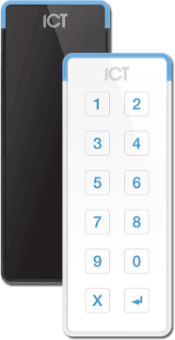 Access Control
Access Control
Voice & Data Wiring
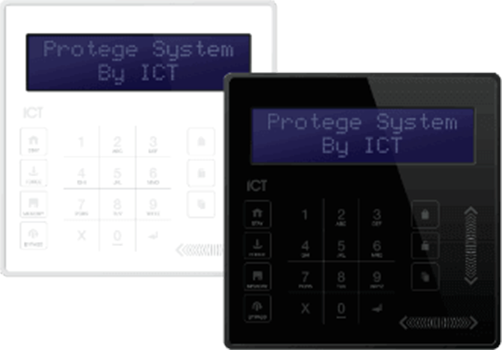 Burglar Alarm
Burglar Alarm
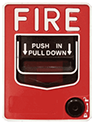 Fire Alarm
Fire Alarm
Video MGMT System
Voice & Data Wiring
THOUGHT CENTER > Blog > Surveillance
April 8, 2023
Installing surveillance cameras in Connecticut workplaces is legal (and a good idea). From detecting security threats like theft and vandalism to ensuring that employees are meeting expectations, workplace surveillance cameras offer many benefits to employers and are legal.
That said, there are laws about appropriate camera locations and uses, and an employee's expectation of privacy can outweigh an employer's right to monitor.
In Connecticut, additional laws protect employees from surveillance in areas designated for well-being, such as employee lounges. Employees must also be notified of surveillance cameras in areas not common to the public.
While security cameras are legal in most locations, audio surveillance poses significant legal issues. In fact, federal wiretap laws are so strict that surveillance camera audio features are usually disabled.
Employers must obtain consent from all employees before recording workplace conversations.
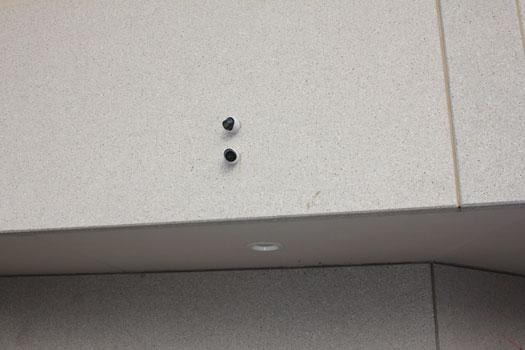
Workplace video surveillance is legal when employers are deemed to have a legitimate business purpose (and when that surveillance does not infringe on an employee's reasonable expectation of privacy).
Laws on surveillance cameras in the workplace allow them for the following purposes:
Video surveillance technology is banned in bathrooms, changing room areas, and other work locations where employees are deemed to have a reasonable expectation of privacy.
Employers must also stay compliant with federal wiretap laws, which restrict audio recordings, and Section 7 of the National Labor Relations Act (NLRA), which prohibits employers from spying on union meetings and other protected union activities, including recruitment. Video surveillance designed to intimidate current or potential union members is strictly off-limits and illegal.
While the federal government doesn't explicitly address the topic of video surveillance in the workplace, many state laws do.
In Connecticut, employers are allowed to video monitor employees without consent, but in most cases, they must provide prominent written notice to employees of any electronic tools used for monitoring.
In addition to banning surveillance in bathrooms and other areas where employees are deemed to have a reasonable expectation of privacy, it's illegal in Connecticut for employers to install surveillance cameras in areas primarily designated for employee well-being, recreation, or the safeguarding of possessions, such as break rooms, lounges, and locker rooms.
According to PUBLIC ACT NO. 98-142 enacted by the Connecticut General Assembly, monitoring employee activities and communications in work areas that are not open to the public (such as storage rooms, office cubicles, and kitchens) requires that notice of surveillance tools in use be provided to employees in writing. This notice should be in the form of a prominently displayed and easily accessible written policy that states the types of electronic monitoring that may occur in the workplace.
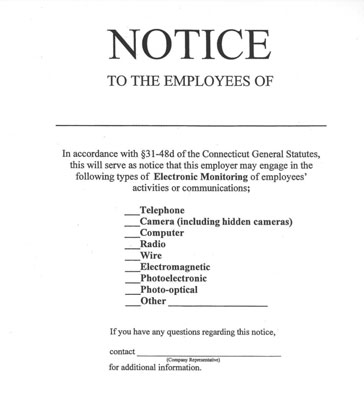
PUBLIC ACT NO. 98-142 states that "each employer who engages in any type of electronic monitoring shall give prior written notice to all employees who may be affected, informing them of the types of monitoring which may occur. Each employer shall post, in a conspicuous place that is readily available for viewing by its employees, a notice concerning the types of electronic monitoring which the employer may engage in. Such posting shall constitute such prior written notice."
Here is the full text of the relevant Connecticut law (Sec. 31-48d) and provides a sample poster that employers can use to satisfy the written notice requirement.
While notification is required for monitoring nonpublic-facing employee work areas, notification need not be provided when monitoring is for security purposes in "common areas of the employer's premises which are held out for use by the public."
In other words, employees need not be informed of monitoring at front desks, lobbies, most hallways, and similar public-facing common areas.
Connecticut also doesn't require employers to provide employees with written notice when they have "reasonable grounds" to believe that monitoring may produce evidence that employees are creating a hostile work environment, are violating the law, or are violating the rights of the employer or other employees.
Evidence of internal theft, such as equipment or company documents that have gone missing, may constitute reasonable grounds for surveillance without notification, but seeking counsel from an attorney is highly advised before taking such a step.
While Connecticut law establishes that notice of surveillance prominently posted in areas readily accessible to employees, such as break rooms, constitutes adequate prior notice, employers should consider including information about surveillance policies in employee handbooks.
A written surveillance policy in employee handbooks can outline the purposes of the surveillance, the types of surveillance used, and how the data collected may be used. By sharing information about the benefits of workplace surveillance, employers can reassure employees that their privacy is respected and that surveillance is in the interest of their protection from security threats and false claims.
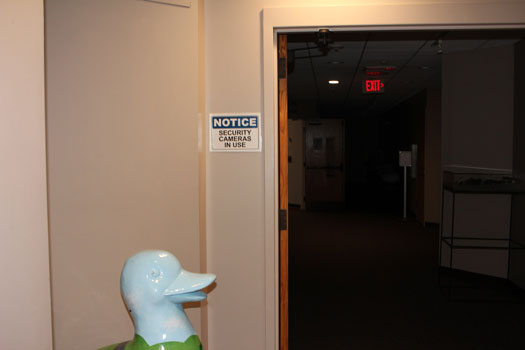
Surveillance cameras deter employees and customers from engaging in vandalism, theft, violence, and other misconduct. When incidents do occur, these recordings provide evidence for investigations and legal proceedings.
Employees and customers are protected when video surveillance systems are in place to proactively detect and deter crime, collect evidence, and provide improved situational awareness for daily operations and during emergencies.
Security camera installations that are integrated with other security and building management systems can turbocharge security protocols. Cameras integrated with access control systems can capture images of all site access attempts to spot irregularities. Cameras with facial recognition can even be used for second-factor authentication.
Cameras integrated with intrusion alarms provide footage where alarms are triggered so that false alarms can be quickly disabled while making eyewitness accounts of genuine intrusions possible. Speedy law enforcement dispatches are far more likely when accompanied by eyewitness accounts. Not least of all, integrated security cameras provide advanced situational awareness during emergencies that can minimize damage and save lives.
Monitoring employee activity related to work responsibilities is a legitimate reason for video surveillance. When employees know they're being monitored, they're more likely to work efficiently and meet expectations.
Video monitoring also makes it possible for management to recognize personnel who are committed to high standards, even when nobody is around.
Surveillance footage can resolve conflicts and protect employees from false claims made by visitors and coworkers.
Workplace video cameras are legitimately used to monitor interactions between customers and employees. Many businesses, especially retail stores, use video surveillance to improve customer wait times and develop better employee customer service training programs.
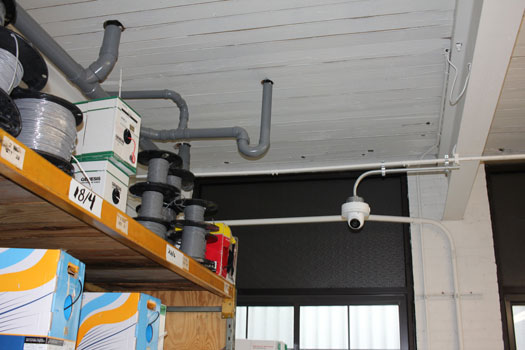
Video cameras help to identify potential safety hazards and compliance violations, helping employers to take corrective actions that prevent workplace injuries and keep them in compliance with OSHA and other regulations.
Video surveillance in the workplace often improves operational efficiency by finding workflow gaps and bottlenecks.
Some video monitoring systems are supported by artificial intelligence that automatically collects data and analyzes it. Some AI-supported systems even produce reports containing original insights that are used to improve marketing, on-site sales, and building management.
There are many well-established, legitimate business reasons for workplace surveillance.
CCTV security cameras support security personnel, collect actionable evidence, and reduce theft and other forms of misconduct, including harassment and violent behavior. Video surveillance also improves workplace productivity and customer service.
Connecticut is an all-party consent state for audio recording, meaning recording is illegal without consent from all involved parties. For this reason, security cameras with audio recording features should have those features disabled.
Cameras that are not readily apparent are legal—but employees must receive prior notification (unless those cameras are in public areas or are justified by "reasonable grounds" to expect that they may uncover specific unprotected behaviors).
Using one-way surveillance mirrors for employee monitoring is strictly illegal in Connecticut.
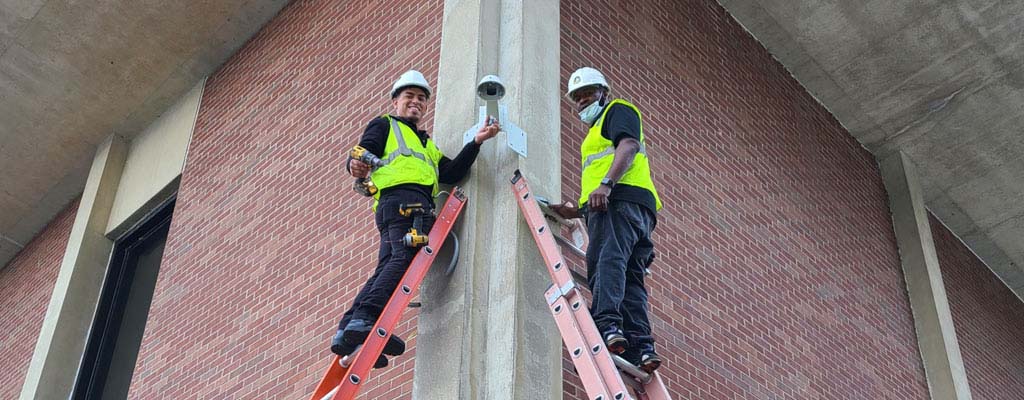
From offices and industrial facilities to healthcare centers and retail shops, our team at Mammoth Security has a lot of experience installing security systems that comply with state and federal laws.
If you have questions about workplace surveillance, don't hesitate to get in touch with us by filling out the simple form below. We'll quickly get back to you to schedule a free site survey and consultation with one of the friendly experts on our team.
NOT COMPLETELY SURE?
860-748-4292